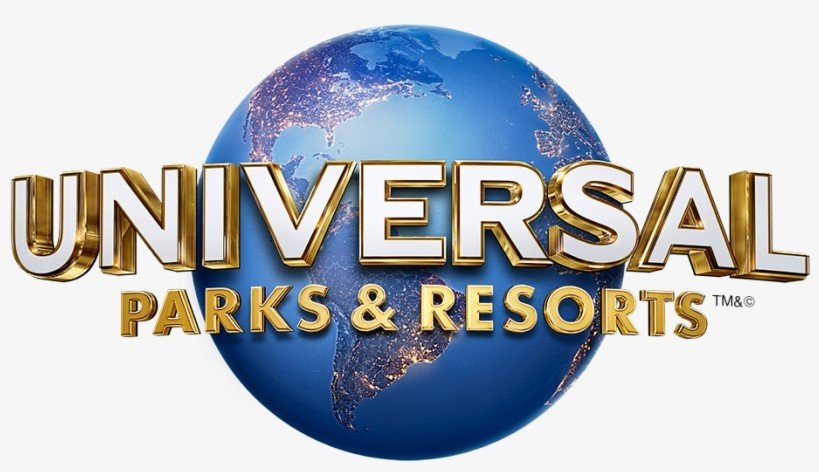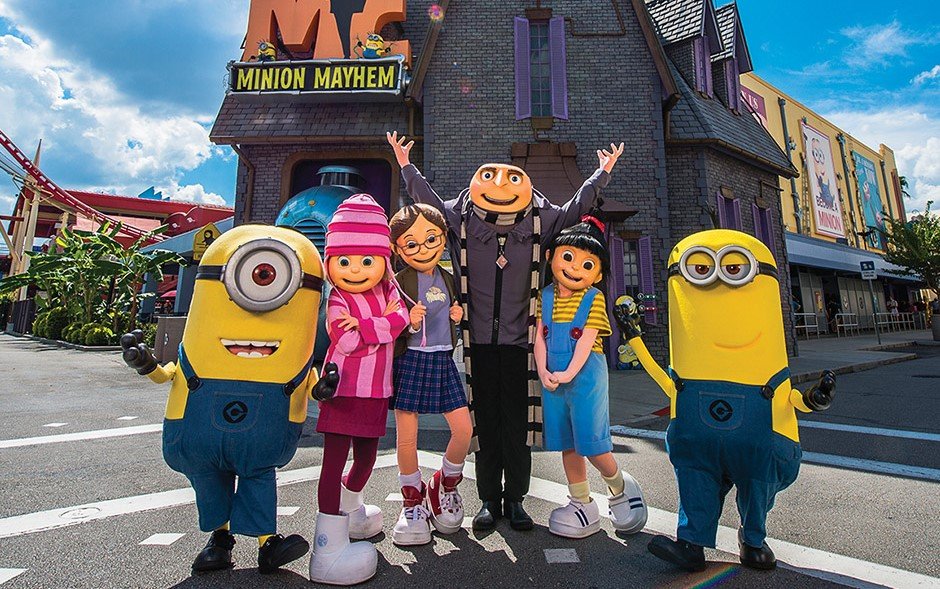Universal Parks SWOT analysis – SWOT analysis of Universal Parks: Universal Parks & Resorts also called The Universal Studio Theme Parks are an assortment of film-based amusement parks that are owned by the famous entertainment company Universal Studios. The company’s headquarters are in Florida, Universal Studios has theme parks spread across several locations, including Japan, Singapore, Moscow, and Beijing. The seven theme parks owned by Universal are among the most popular among the top 25 theme parks.
The theme parks are a wholly controlled subsidiary owned by NBC Universal which in turn is part of Comcast. The theme parks employ themes from movies that are popular at Universal Studios to create fun rides and experiences that are fantasy. Visitors also get an opportunity to learn about what takes place in the background during or after the re-creation of famous scenes from their films.
Universal Theme Parks Orlando Florida was visited by 41 million people in 2016 which makes it the most popular theme park of the year. Apart from the fun rides and experiences for the studio, Universal Studio theme parks also offer world-class restaurants and hotels that serve international cuisines.
Universal Parks fun facts: Steven Spielberg, who worked closely with Universal Orlando Resort on developing Universal Studios, can be spotted in several rides, including as an alien in Men in Black: Alien Attack and as a “simpsonized” version in The Simpsons Ride. In Men in Black: Alien Attack, Spielberg can be seen wearing a Jurassic Park baseball cap and reading a newspaper. When shot at, the figure lowers its newspaper, revealing a triple-headed alien.
Contents
- 1 About Universal Parks – SWOT analysis of Universal Parks
- 2 Universal Parks Competitors
- 3 SWOT analysis of Universal Parks – Universal Parks SWOT analysis
- 4 Strengths of Universal Parks – Universal Parks SWOT analysis
- 5 Weaknesses of Universal Parks – SWOT Analysis Of Universal Parks
- 6 Opportunities of Universal Parks – Universal Parks SWOT analysis
- 7 Threats of Universal Parks – SWOT analysis of Universal Parks
About Universal Parks – SWOT analysis of Universal Parks
[wp-svg-icons icon=”office” wrap=”I”] Company: Universal Studios, Inc.
[wp-svg-icons icon=”user” wrap=”I”] CEO: Thomas L. Williams
[wp-svg-icons icon=”user” wrap=”I”] Founder: Carl Laemmle
[wp-svg-icons icon=”calendar” wrap=”I”] Year founded: 15 July 1964
[wp-svg-icons icon=”location-2″ wrap=”I”] Headquarters: Orlando, Florida, United States
[wp-svg-icons icon=”stats” wrap=”I”] Annual Revenue: USD1.9 billion
[wp-svg-icons icon=”bars” wrap=”i”] Profit | Net income: USD397 million
[wp-svg-icons icon=”users” wrap=”I”] Number of employees: 3,682
[wp-svg-icons icon=”pie” wrap=”i”] Products & Services: Ride the movies, Live the adventure, Experience epic thrills, and more with Universal Parks and Resorts.
[wp-svg-icons icon=”globe” wrap=”I”] Website: www.universalparks.com
Universal Parks Competitors
[wp-svg-icons icon=”pacman” wrap=”I”] Competitors: Caesars Windsor | PortAventura World | Hard Rock Hotel & Casino | Loews | Wyndham Hotels & Resorts | HARD ROCK HOTEL SAN DIEGO | Disneyland Resort | Universal Orlando | PortAventura World | Warner Bros. Entertainment | Paramount Pictures | SHOCHIKU | SeaWorld Parks & Entertainment | The Walt Disney Company | Lionsgate Entertainment
SWOT analysis of Universal Parks – Universal Parks SWOT analysis
SWOT Analysis Of Universal Parks is brand-based. SWOT Analysis of Universal Parks evaluates the brand’s strengths, weaknesses, opportunities, and threats. Advantages and disadvantages can be attributed to internal factors while opportunities and threats can be attributed to external factors. We will be discussing Universal Parks’s SWOT Analysis. Below is the detailed SWOT Analysis of Universal Parks.
Let’s talk about Universal Parks’s SWOT assessment.
Strengths of Universal Parks – Universal Parks SWOT analysis
- Experience: Universal Studios understands what an experience at a theme park is about and makes sure that every one of its attractions offers something unique to visitors. The experiences are in stark contrast to the everyday people experience every day and promise fun and excitement. Many of them are multi-sensory experiences that engage every sense and are truly distinctive.
- Security: The most important factor to judge an attraction will be how much security it provides to its customers. Universal Studios has always taken extra steps to ensure all of their attractions and activities are safe in safe and dependable. In reality, strict security checks are a major expense for parks like this.
- Intellectual Property: Each theme park sets distinct from the other theme parks by the intellectual rights they have that allow them to be the sole owners of the theme. The most popular themes of Universal are Simpsons as well as Harry Potter. These intellectual properties guarantee that each experience is unique and thrilling, and they also ensure an unambiguous distinctness between the themes in the park.
- Advertising: Each theme in Universal offers guests to have a great time with characters that they’ve read about in books, or watched in their favorite films. The most popular themes such as minions and Harry Potter touches an emotional connection with those who have seen these films or read the books and are avid fanatics of them. This helps to build brand loyalty and will ensure repeat visits.
- Operations efficacy: One key parameter to measure the satisfaction of the customer within theme parks is the length of time spent waiting. Customers don’t want to sit for hours in line to get to each attraction, so Universal Theme Parks are always concentrated on managing capacity. To achieve this they use suspended reality using lighting, sound, or props that reduce boredom during wait times and make customers feel more engaged.
- Use of technology: One of the largest companies in the entertainment industry, Universal Studios has always been an innovator in technology-related applications in the realm of. This is evident in their theme parks where the majority of rides and experiences are created with the most modern technology available in the technology marketplace.
Weaknesses of Universal Parks – SWOT Analysis Of Universal Parks
- Crowd Management: In certain of their most popular themes, such as Harry Potter, Universal has made significant investments in crowd management technologies such as virtual queueing systems that allow visitors to anticipate shorter queues and set timetables for their visits. Despite these massive investments, it still has many challenges due to massive crowds that are difficult to manage frequently resulting in unhappy guests.
- Natural Calamities: The Orlando theme park that is the biggest money-maker for Universal is located in an area in which hurricanes have caused havoc. When hurricane Mathew was an example the theme park was forced to close for a whole day, which led to a significant loss of revenue for the company.
- The image is maintained: Theme parks are focused on creativity and making new experiences every day. To sustain the image, theme parks must spend on exciting rides and experiences which are extremely expensive.
Opportunities of Universal Parks – Universal Parks SWOT analysis
- Changes in consumer preferences: The propensity to spend as a result of families having double-income families is growing. Families are increasingly traveling together to relax and enjoy leisure. There is a growing interest in movie franchises, even in emerging economies. This creates the potential for theme parks.
Threats of Universal Parks – SWOT analysis of Universal Parks
- Competitors: The biggest rivals of Universal Studio Theme Parks are Disney Land as well as Sea World.
You May Also Like:
- Ritz Carlton SWOT analysis
- Petronas SWOT analysis
- Banana Republic SWOT analysis
- Standard Chartered Bank SWOT analysis
- Dolce & Gabbana SWOT analysis
This is the SWOT analysis of Universal Parks. Please let us know if you have additional suggestions to add.
[wp-svg-icons icon=”bubbles” wrap=”i”] Let us know What do you think? Did you find the article interesting?
Write about your experiences and thoughts in the comments below.


